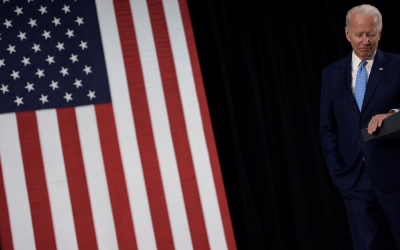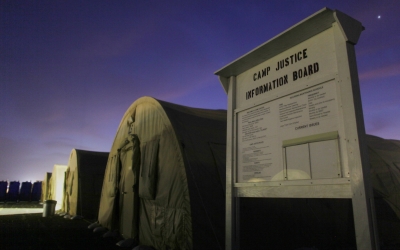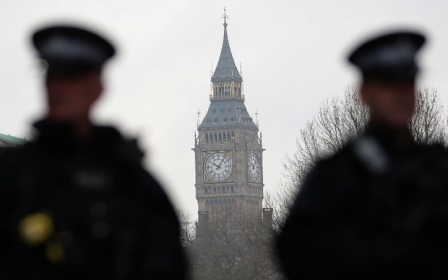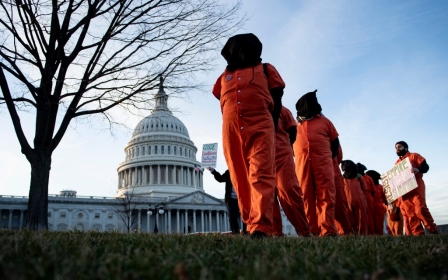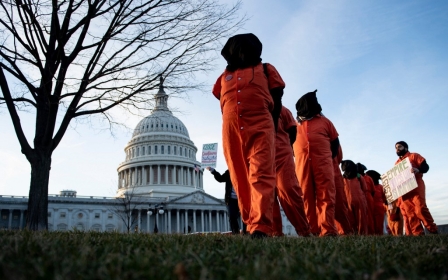New defence attorney in 9/11 Guantanamo trial requests 30-month delay to prepare

The joint trial of five men charged in the 9/11 attacks may be postponed because a new defence attorney in the case has requested a 30-month extension to prepare.
David Bruck, the new lead attorney for Ramzi bin al-Shibh, one of the five men charged in the 9/11 case, estimated in a legal filing on Wednesday that he would need two-and-a-half years to get caught up on the proceedings.
"The following estimate of the work before me reflects, 'prevailing professional norms at the time of [this] trial', as required by well-established Supreme Court precedent," Bruck wrote, breaking down the reasons for the hours needed to properly prepare for the case.
Bruck, who officially began working on the case on 1 July, said it would take hundreds of hours to read the 33,000 pages of hearing transcripts alone, and noted that the coronavirus pandemic was likely to postpone much of the work needed to be done.
For instance, Bruck has not yet been able to meet with his client, as regular travel to the prison camp has been barred by Covid-19 restrictions.
Al-Shibh's previous lead attorney, James P Harrington, asked to leave the case in April, citing health issues and "incompatibility" with his client.
After years of delays, the joint 9/11 trial was set to finally begin in January 2021, but that date is likely to be pushed back even further.
In his filing, Bruck acknowledged that government prosecutors are likely to push back against his 30-month estimate, but wrote that it is "the minimum amount of time required to do the job for which I have been appointed".
The new Guantanamo lawyer has in the past defended clients including Charleston church shooter Dylann Roof and Boston Marathon bomber Dzhokhar Tsarnaev.
Delays at the war court
Bruck's request is not the only issue holding up the often-postponed trial. In April, the 9/11 case's judge, Air Force Colonel W Shane Cohen, abruptly announced his retirement after nine months at Guantanamo's war court. Cohen was the third judge to quit the case since August 2018.
Also in April, the head of the military court, Christian Reismeier, transferred after having held the position for less than a year.
Jury selection was expected to start in January, but that also could face complications amid the coronavirus pandemic.
In the past, proceedings at Guantanamo have also been postponed on several occasions because of defence attorneys and prosecutors quitting mid-case over objections to the court's incredibly complicated legal system.
Since 9/11, the US government has spent more than $6bn on the war court and prison. Each prisoner is estimated to cost the US $13 million a year.
Human rights groups and advocates have long called for the prison camp and war court to be shut down, calling for federal trials in the standard US federal court system.
The Trump administration has stated emphatically that it will not attempt to close Guantanamo prison, nor has it made any effort to push for federal trials as opposed to the problematic war court.
Presidential candidate Joe Biden said in June that he planned to close the prison if elected, saying it "is at odds with our values as a country". He did not say whether he supported federal trials, which would require some legislative changes to be made by Congress.
There are 40 prisoners remaining at the prison camp. Five were cleared for release before Trump took office, but have remained in detention under his administration. Seven are being tried in Guantanamo's war court, two have been convicted - although only one has been sentenced - three have been recommended for trial, and 23 - deemed "forever prisoners" - are being held without charge or trial in indefinite detention.
Middle East Eye delivers independent and unrivalled coverage and analysis of the Middle East, North Africa and beyond. To learn more about republishing this content and the associated fees, please fill out this form. More about MEE can be found here.


